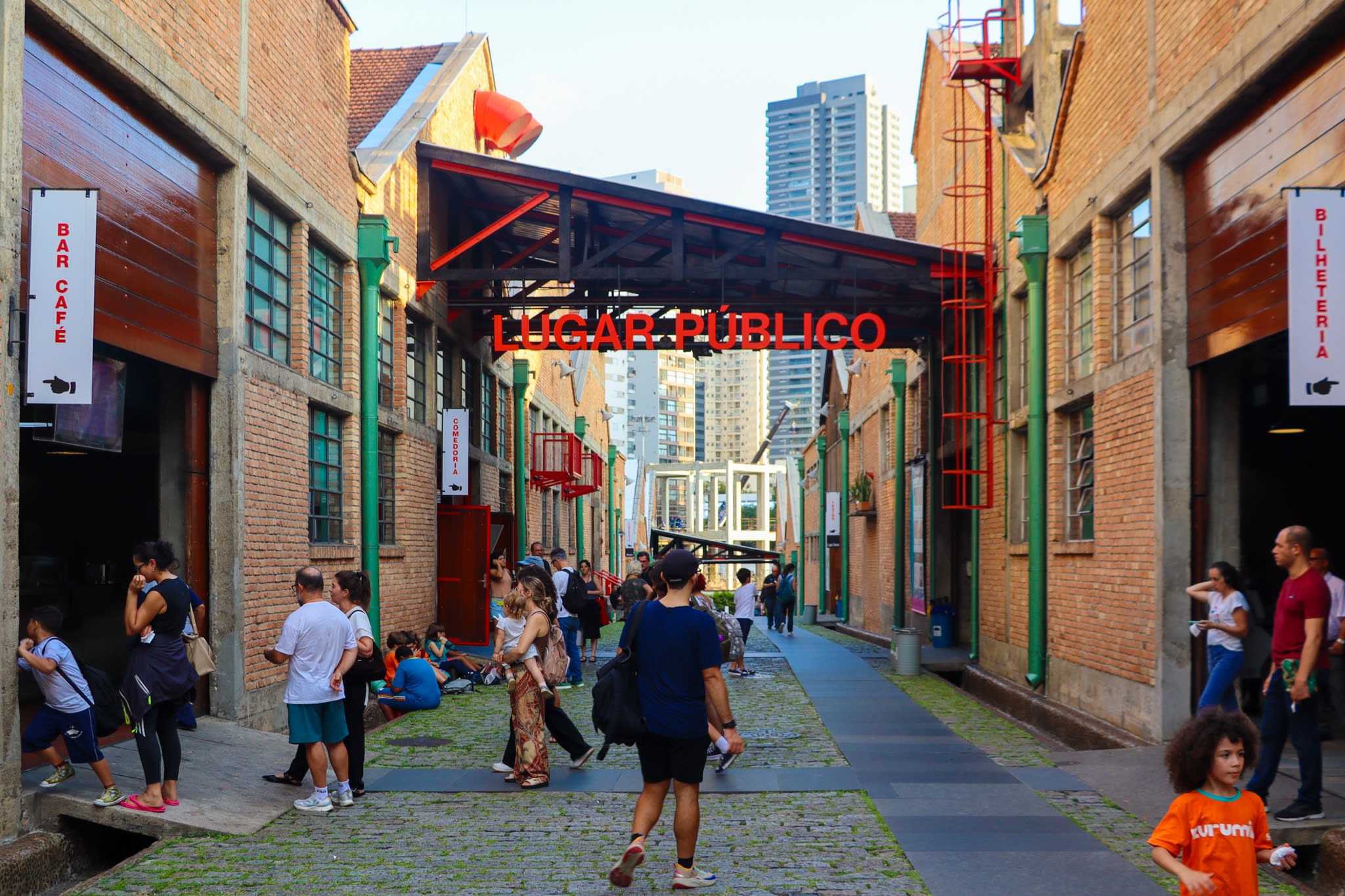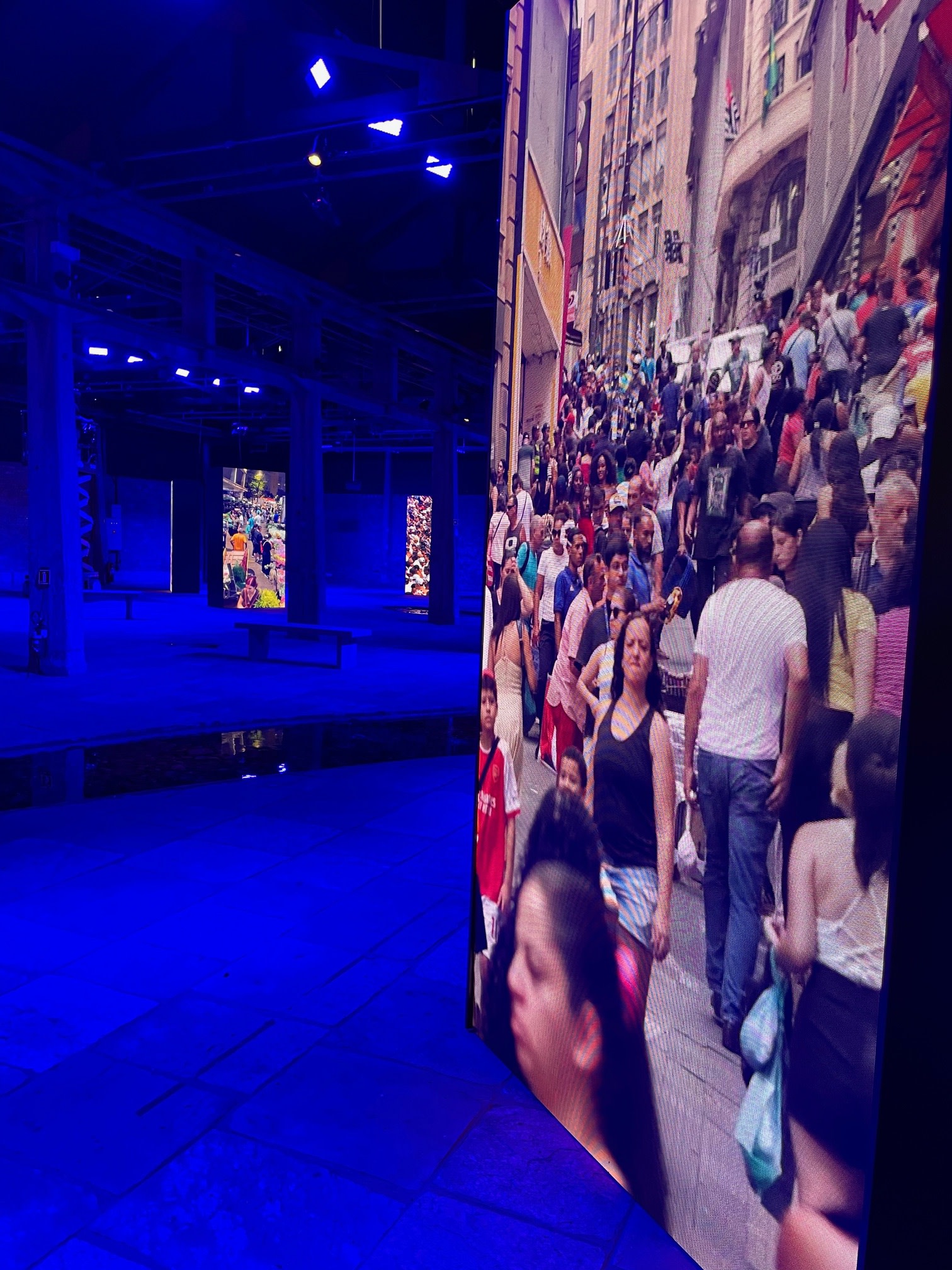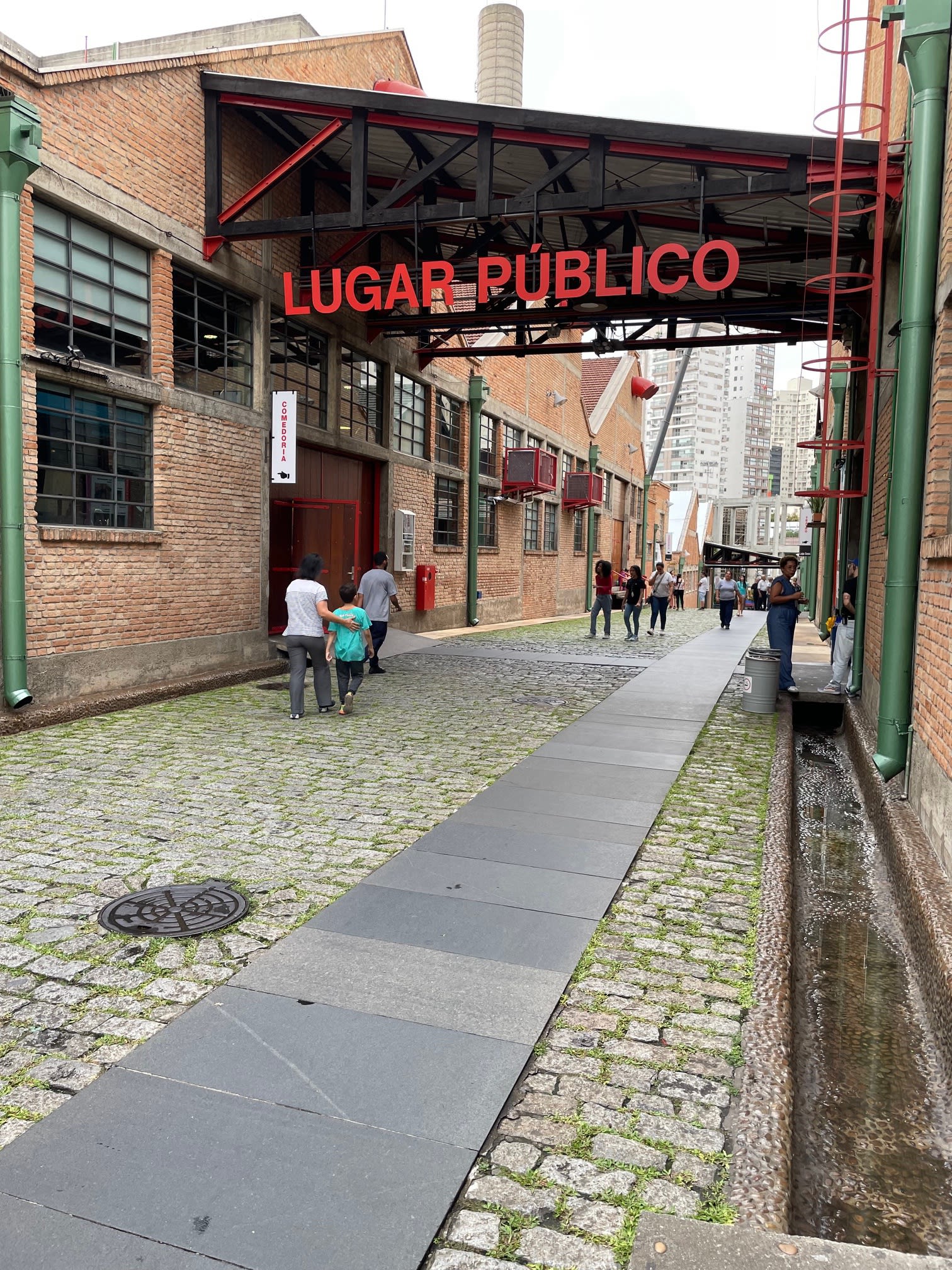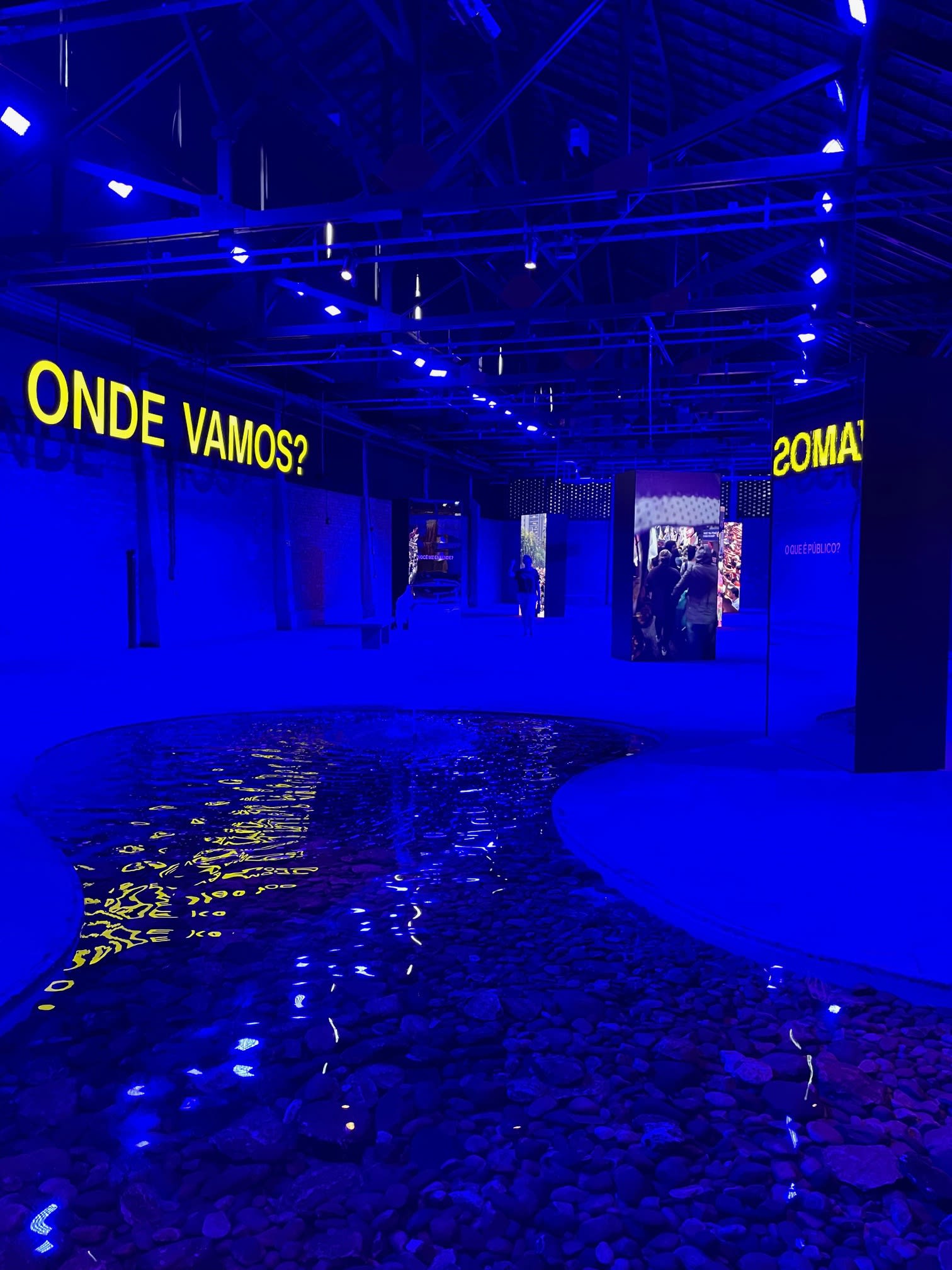
With the new exhibition Lugar Público [Public Place], Antoni Muntadas brings a site-specific installation to Sesc Pompeia in São Paulo, Brazil. From April 5 to August 10, Muntadas’ intervention will take over Sesc Pompeia’s Conviviality Area, inviting the public to reflect on the evolving dynamics of urban spaces and the increasingly blurred lines between public and private domains.
Mark your calendars for Antoni Muntadas’ São Paulo show of 2025—his largest site-specific installation to date.
A Legacy of Critical Engagement
Muntadas (*1942, Barcelona) has long questioned the messages and power structures at play in urban imagery and text, bringing to light the forces shaping the media landscape and public discourse. Known for his institutional critique and challenge to social and cultural norms, he has become an influential figure in video and media art.
With Lugar Público, the artist extends his inquiry into São Paulo’s built environment, exposing the often-invisible mechanisms governing access, visibility, and participation in today’s cities.

Art as Inquiry
Curated by Diego Matos and sponsored by Sesc Pompeia, Lugar Público is a site-specific intervention that transforms the Conviviality Area, a space designed for leisure and civic engagement.
Through audiovisual, textual, and architectural elements, the project probes the concept of “public”—both as a physical space and as an engaged audience. In the context of growing privatization of urban spaces, the artist challenges visitors to ask how and by whom public spaces are occupied, controlled, and redefined: Who truly occupies public spaces? Are they still democratic, or have they become restricted zones subject to economic and political interests? Muntadas’ work questions how increasing surveillance and control change collective spaces, often to the detriment of communities that rely on these areas for gathering and exchange.

Installation view: "Lugar Público", Antoni Muntadas
Lugar Público features newly created works that activate the Conviviality Area. Another key component of the exhibition is a collection of over 50 posters from Muntadas’ extensive career, alongside a study area featuring selected publications.
Urban Transformation Between Past, Present, and Future
This art exhibition stands in direct dialogue with Sesc Pompeia, itself an emblem of urban transformation. Originally a factory, the site was redesigned by Italian-Brazilian architect Lina Bo Bardi into a cultural and leisure center. Balancing industrial memory with inclusive and welcoming structures, Sesc Pompeia has become one of Brazil’s most dynamic cultural institutions. Muntadas’ intervention engages directly with this legacy, emphasizing how public spaces are contested, regulated, and reimagined over time.

Installation view: "Lugar Público", Antoni Muntadas
Through this expansive project, Muntadas continues his decades-long relationship with Brazil. This exhibition applies his long-standing contribution to the discourse on media, power, and public space to the Brazilian context. Lugar Público serves as both a retrospective of his critical inquiries and a forward-looking statement on the role of shared spaces in an era of rapid urban transformation.
Reimagining Public Spaces for the Future
Muntadas’ work is informed by the belief in art’s power to disrupt complacency and provoke new ways of thinking. With Lugar Público, he continues to urge audiences to critically assess the forces shaping their lived environments. It is an invitation to rethink our cities and the future of public life.
As the exhibition challenges visitors to examine the structures that limit collective freedom, it also presents a vision for a more inclusive and democratic urban environment. Muntadas urges us to question how power operates within the spaces we inhabit and to imagine alternative futures where public spaces remain truly public.

Installation view: "Lugar Público", Antoni Muntadas
Learn more about Antoni Muntadas’ biography and our other artists and activities on the Kent Fine Art Homepage. Make sure to subscribe to our mailing list and stay tuned for more news.

